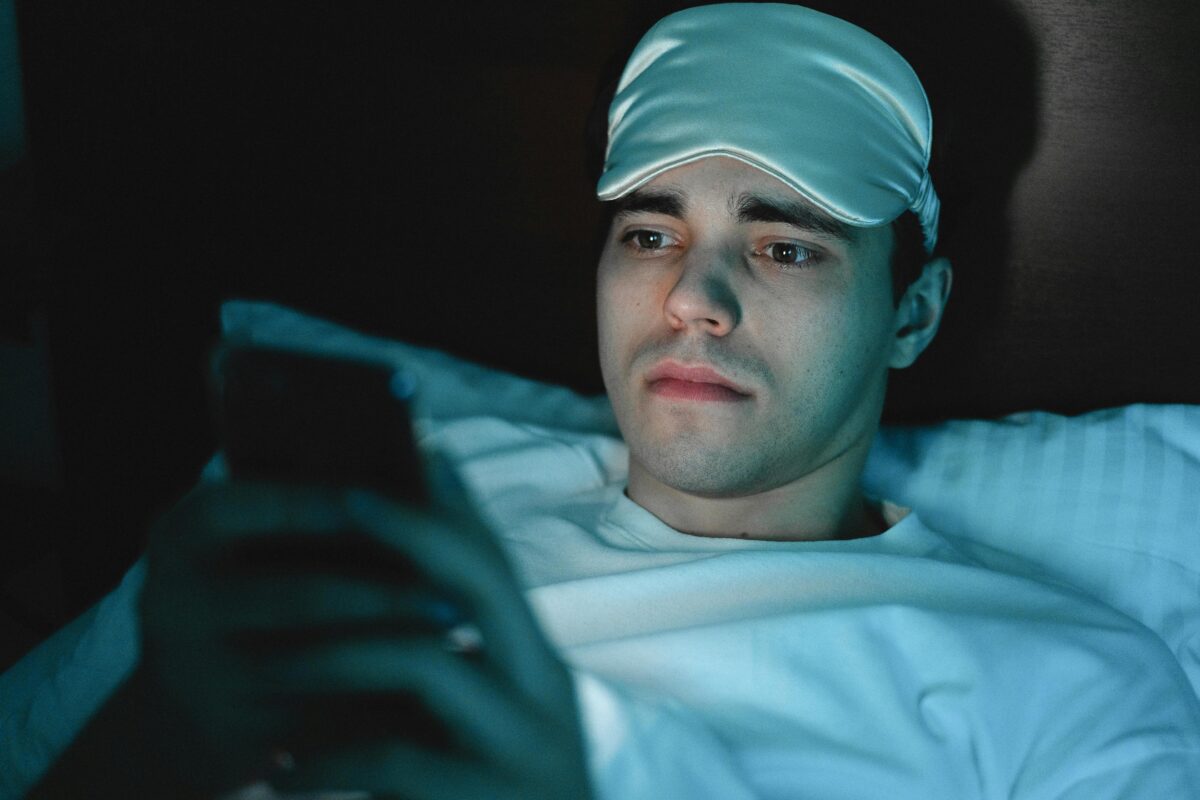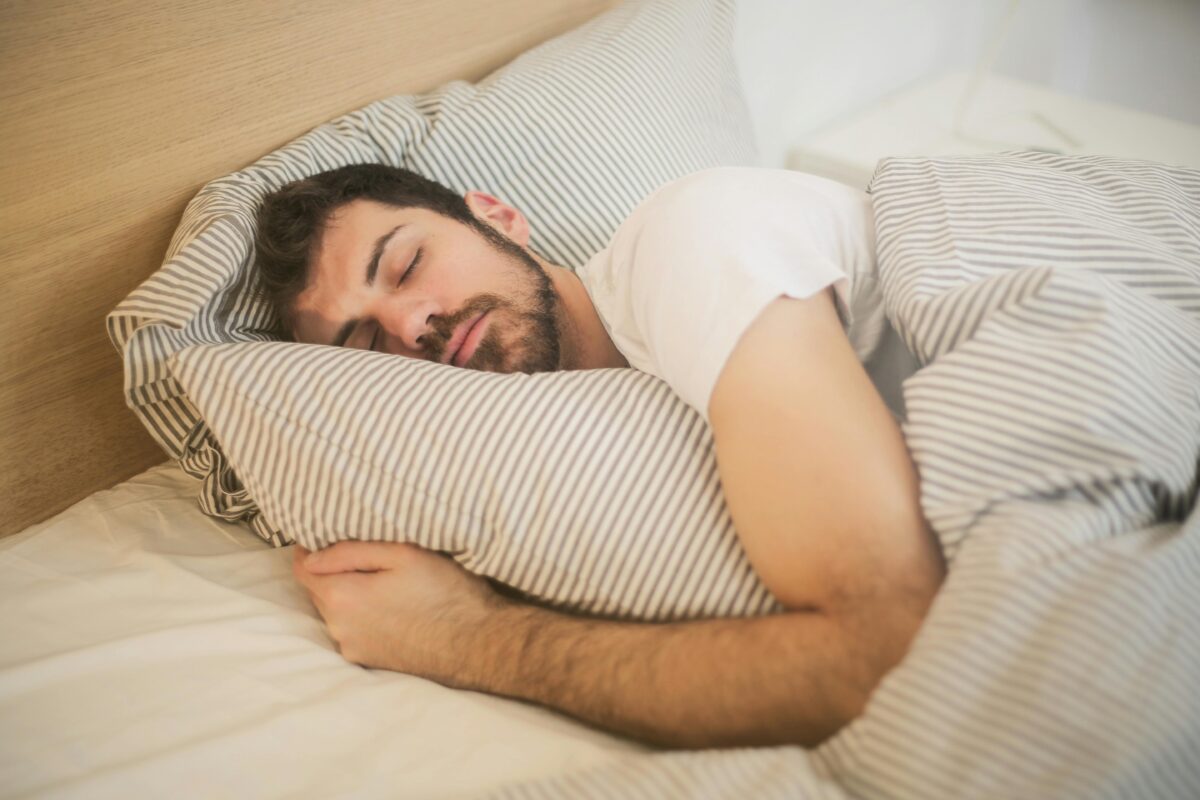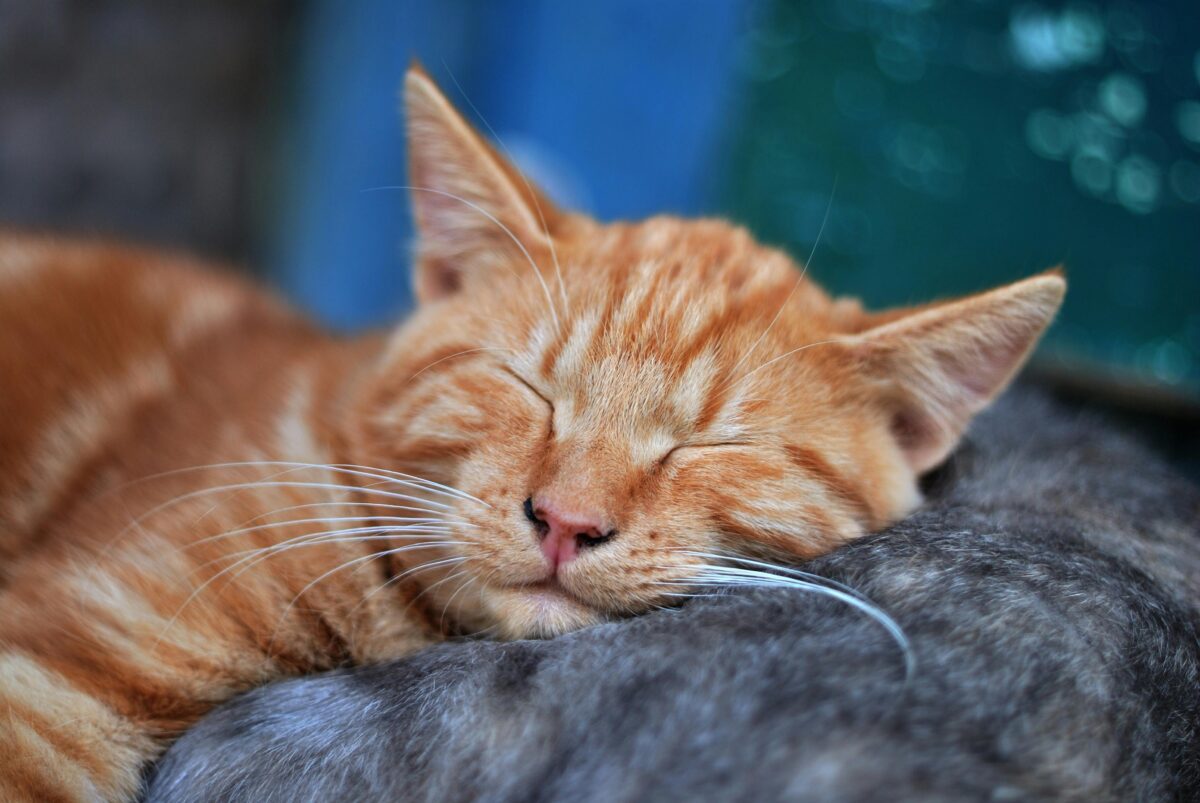The Benefits of Acupuncture for Quality Sleep (Part 1)
Research increasingly highlights acupuncture as a potent ally against insomnia, and demonstrates its ability to enhance sleep quality and duration while minimizing the mental clutter that often keeps us awake. Studies have shown that it not only helps individuals drift off into restful slumber but also revitalizes their overall sense of well-being, making it an attractive alternative or complement to more traditional treatments. For those entangled in the struggle against sleeplessness, integrating acupuncture into their wellness journey may offer a refreshing, drug-free solution that promotes harmony between body and mind. As we continue to explore the multifaceted benefits of this ancient practice, it becomes clear that acupuncture is more than just a treatment; it’s a gateway to reclaiming restful nights and vibrant days.
Sleep is an absolute necessity of life. Without adequate rest our systems are not able to function optimally which could eventually lead to more serious health issues physically, emotionally, and mentally. For most, this means getting about seven hours of uninterrupted sleep every night. According to the National Council of Aging, more than a third of Americans report getting less than this in a twenty-four hour period. Whether caused by stress, poor lifestyle habits, or underlying medical conditions, sleeplessness can lead to a cycle of exhaustion, mood and emotional changes, and poor health.

Insomnia disorder is characterized by a predominant complaint of dissatisfaction with sleep quantity or quality[1], associated with one (or more) of the following symptoms:
- Difficulty initiating sleep.
- Difficulty maintaining sleep, characterized by frequent awakenings or problems returning to sleep after awakenings.
- Early-morning awakening with inability to return to sleep.
- Sleep difficulty is present for at least three months.
Conventional treatments can include cognitive behavioral therapy and sleep aid medications. However, these may carry unwanted side effects and often do not address the root or underlying cause of sleep issues. Acupuncture and Traditional Chinese Medicine (TCM), however, is a safe and effective intervention for sleep regulation.
Unlike medications, acupuncture provides a non-invasive, drug-free alternative with minimal side effects. It not only targets sleep issues but also improves overall well-being, helping people feel more energized, focused, and balanced.
How Acupuncture Works
Acupuncture is a technique that involves inserting fine needles into specific points on the body. From a Western Medicine perspective, this is essentially helping the body to turn on the “rest and digest” or parasympathetic branch of the nervous system which counterbalances the “fight or flight” response. The primary function of the parasympathetic system is to conserve energy, restore the body to a state of calm after periods of stress or activity and supports basic bodily functions necessary for long-term health. Unfortunately, many individuals are chronically in an upregulated state due to stress, poor diet, lifestyle choices, pain, and even emotions. The activation of rest and digest typically occurs during times of peacefulness, relaxation, or after eating. Furthermore, acupuncture may influence the production of neurotransmitters such as serotonin and melatonin, hormones crucial for sleep regulation, enhancing its effectiveness in promoting better sleep outcomes, as noted in reviews.[2]
Every person may generally say, “I have insomnia,” however their symptoms may vary from person to person. Acupuncturists choose specific points on acupuncture meridians based on how each person presents. For instance, a person who has trouble falling asleep because their mind is racing with excessive thoughts, is a different pattern than a person who wakes in the middle of the night from nightmares, hot flashes, or because they have to urinate. It is an acupuncturists job to decipher the pattern. Acupuncture helps restore proper energy flow, improve circulation, and reduce inflammation thereby reducing feelings of sluggishness and exhaustion. By addressing the root cause of insomnia—whether physical, physiological, or emotional—acupuncture provides a more holistic approach. It has a cumulative effect and provides true changes in vitality compared to temporary energy boosts from stimulants such as caffeine and sugar.
How Acupuncture Treats Insomnia
Recent scientific research highlights acupuncture as a promising treatment for insomnia, with several systematic reviews and meta-analyses supporting its efficacy. A recent study[3] found that acupuncture significantly improved sleep quality in patients with insomnia compared to sham or placebo treatments. This study’s findings align with another study[4], whose meta-analysis concluded that acupuncture not only reduces insomnia symptoms but also improves overall sleep patterns by acting on multiple points across the body that may help balance energy flow. Current research suggests that acupuncture could be a valuable, holistic option for individuals struggling with insomnia, offering both subjective improvements in sleep quality and measurable changes in sleep duration and efficiency.
The potential benefits of acupuncture go beyond subjective sleep quality[5], showing that acupuncture can improve objective sleep indices, including sleep duration, efficiency, and even reductions in wakefulness during the night.
Acupuncture’s Benefits Beyond Sleep

One of the unique advantages of acupuncture is that it doesn’t just target sleep or fatigue; it benefits a patient’s overall well-being. Patients often report feeling calmer, more balanced, and energized with regular acupuncture treatments, regardless of the initial reason for seeking care. This sense of equilibrium helps one to cope better with daily challenges, reduces mental clutter, and break free from the stress-fatigue-insomnia loop.
Enter: The AcuNap! The term “acunap” refers to the deep, restorative nap many patients experience during an acupuncture session. This effect occurs as acupuncture activates the parasympathetic nervous system. Once the needles are placed, the body begins to enter a calm, meditative state, which can naturally induce sleep and patients frequently doze off. Although this sleep may be short, it feels profoundly refreshing, as though you have experienced a full night’s rest. This state of deep relaxation not only contributes to a sense of revitalization but also significantly enhances the therapeutic effects of the acupuncture treatment. It allows the body to enter a powerful recovery mode, improving overall well-being while fostering mental clarity and physical healing. The “acunap” serves as an important marker of acupuncture’s holistic capacity to harmonize both mind and body, blending deep relaxation with therapeutic efficacy.
Treatments at Our Clinic: What to Expect
Your acupuncturist will identify the pattern contributing to your insomnia and choose specific acupuncture points to address both your immediate symptoms and underlying health issues. In TCM, insomnia is viewed as imbalances in the body’s energy channels, or meridians. Specific acupuncture points are used to regulate the flow of Qi through these channels, particularly targeting:
- Heart Channel: Often linked to emotional stress and sleep disturbances.
- Liver Channel: Governs stress, irritability, and energy balance, which directly impacts sleep quality.
- Spleen and Kidney Channels: Essential for replenishing energy and addressing physical fatigue.
From a TCM perspective, insomnia is often caused by disharmonies in these channels. For instance, the Heart Channel is associated with “Shen” (spirit), which influences mental restfulness. When the Heart Qi is weak or disturbed, sleep issues may arise. Likewise, the Liver Channel controls the flow of emotions, and when stagnation occurs (excessive sighing, depression), it can cause irritability, stress, and sleeplessness. This is why acupuncturists often treat these syndromes to harmonize the body and mind, improving both sleep quality and energy levels.
Good sleep hygiene promotes better, more consistent sleep, which is crucial for mood regulation, cognitive function, immune system health, and overall well-being. Poor sleep hygiene can lead to insomnia, daytime sleepiness, irritability, and decreased concentration. By developing healthy sleep habits and sticking to them, you can set the stage for better, more restful nights, contributing to your overall health and productivity.
In summary, sleep is not merely a luxury but a fundamental necessity that influences our overall health and vitality. The consequences of inadequate sleep can have far-reaching effects, leading to a cascade of physical and mental health challenges. While conventional treatments like cognitive-behavioral therapy and sleep medications have their place, they often fail to tackle the underlying issues and can introduce unwelcome side effects. Enter acupuncture: a time-honored practice that melds the wisdom of TCM with modern scientific insights. By harnessing the power of the parasympathetic nervous system, acupuncture facilitates a profound state of relaxation, allowing the body to rejuvenate and restore its natural rhythms.

Written by Whitney Patterson, edited by Erin Pass
[1] According to the DSM-V (the standard classification of mental disorders and the diagnostic tool for mental health professionals)
[2] Zhang et al. (2019)
[3] Zhang et al. (2020)
[4] Kim et al. (2021)
[5] Zhao et al. (2021)
Sources:
Sources:
Zhang J, He Y, Huang X, Liu Y, Yu H. The effects of acupuncture versus sham/placebo acupuncture for
insomnia: A systematic review and meta-analysis of randomized controlled trials. Complement Ther Clin
Pract. 2020 Nov;41:101253. doi: 10.1016/j.ctcp.2020.101253. Epub 2020 Nov 1. PMID: 33186824.
Kim SA, Lee SH, Kim JH, van den Noort M, Bosch P, Won T, Yeo S, Lim S. Efficacy of Acupuncture
for Insomnia: A Systematic Review and Meta-Analysis. Am J Chin Med. 2021;49(5):1135-1150. doi:
10.1142/S0192415X21500543. Epub 2021 May 27. PMID: 34049475.
Zhao FY, Fu QQ, Kennedy GA, Conduit R, Zhang WJ, Wu WZ, Zheng Z. Can acupuncture improve
objective sleep indices in patients with primary insomnia? A systematic review and meta-analysis. Sleep
Med. 2021 Apr;80:244-259. doi: 10.1016/j.sleep.2021.01.053. Epub 2021 Feb 2. PMID: 33610071.
Zhang M, Zhao J, Li X, Chen X, Xie J, Meng L, Gao X. Effectiveness and safety of acupuncture for
insomnia: Protocol for a systematic review. Medicine (Baltimore). 2019 Nov;98(45):e17842. doi:
10.1097/MD.0000000000017842. PMID: 31702639; PMCID: PMC6855569.
Baranwal N, Yu PK, Siegel NS. Sleep physiology, pathophysiology, and sleep hygiene. Prog Cardiovasc
Dis. 2023 Mar-Apr;77:59-69. doi: 10.1016/j.pcad.2023.02.005. Epub 2023 Feb 24. PMID: 36841492.
Substance Abuse and Mental Health Services Administration. Impact of the DSM-IV to DSM-5 Changes
on the National Survey on Drug Use and Health [Internet]. Rockville (MD): Substance Abuse and Mental
Health Services Administration (US); 2016 Jun. Table 3.36, DSM-IV to DSM-5 Insomnia Disorder
Comparison. Available from: https://www.ncbi.nlm.nih.gov/books/NBK519704/table/ch3.t36/
National Council on Aging. "Sleep Statistics." National Council on Aging,
https://www.ncoa.org/adviser/sleep/sleep-
statistics/#:~:text=Among%20adults%20older%20than%2018,that%20impacts%20their%20daily%20acti
vities. Accessed 3 Oct. 2024.
Sleep Foundation. "Acupuncture for Insomnia." Sleep Foundation,
https://www.sleepfoundation.org/insomnia/acupuncture-for-insomnia. Accessed 3 Oct. 2024.
AIHCP. (2023, June 29). How emotional freedom technique (EFT) for better sleep. Retrieved from
https://aihcp.net/2023/06/29/how-emotional-freedom-technique-eft-for-better-
sleep/#:~:text=EFT%20tapping%20points%20and%20techniques,collarbone%2C%20and%20under%20t
he%20arm.
Sleep Foundation. (n.d.). Sleep Hygiene. Retrieved from https://www.sleepfoundation.org/sleep-hygiene
Cleveland Clinic. (n.d.). Sleep Hygiene: Tips for Better Sleep. Retrieved from
https://my.clevelandclinic.org/health/articles/12148-sleep-hygiene-tips



